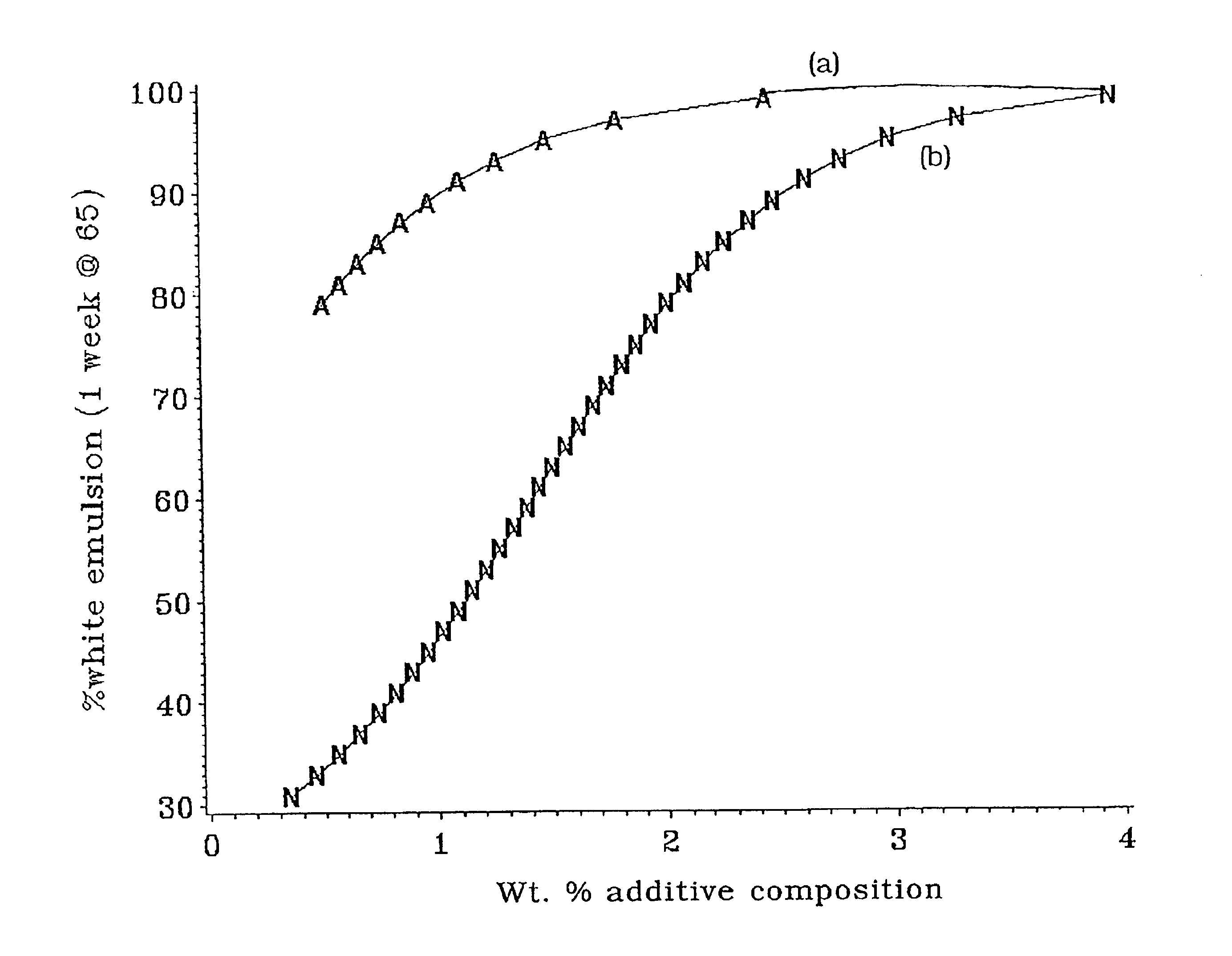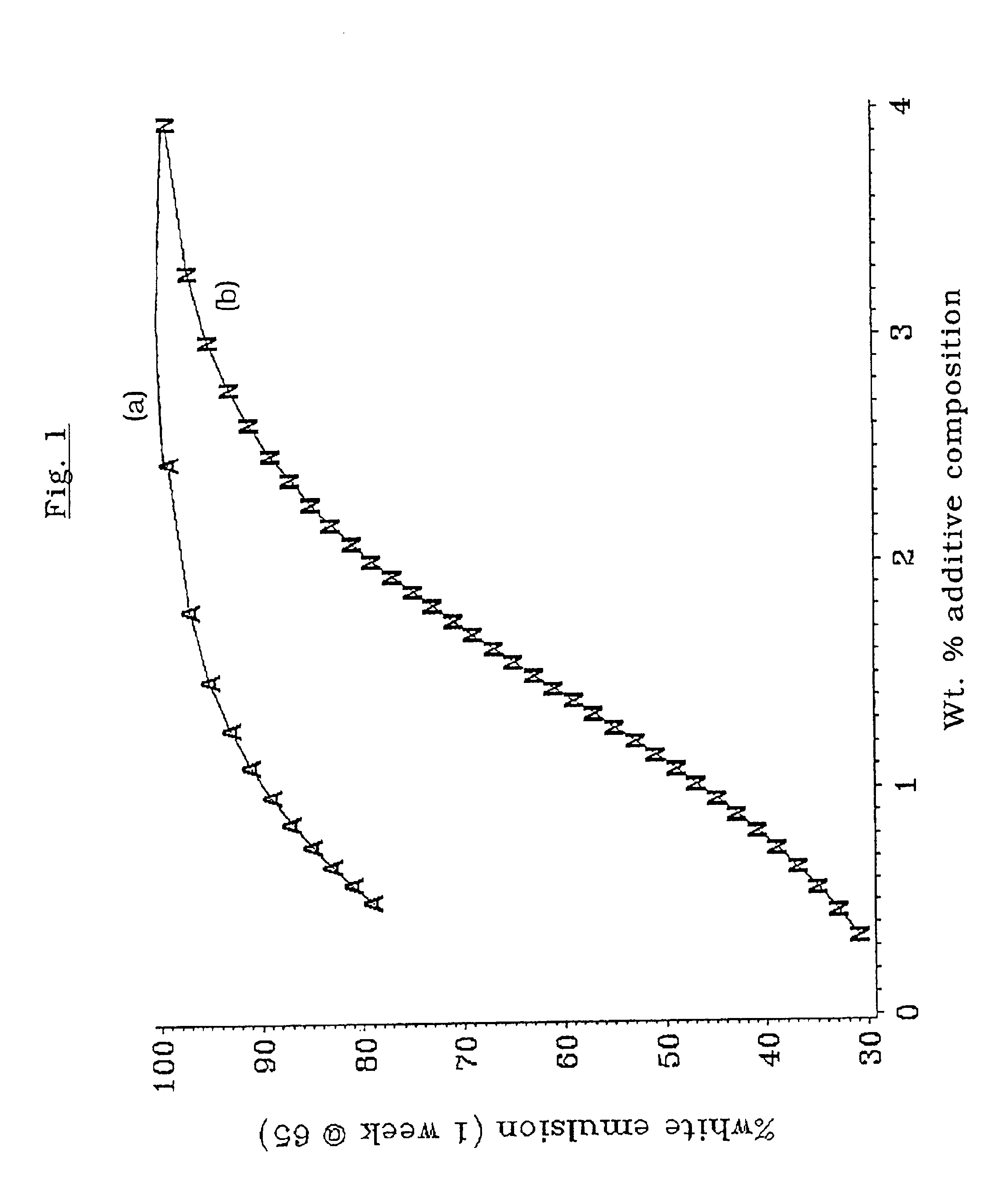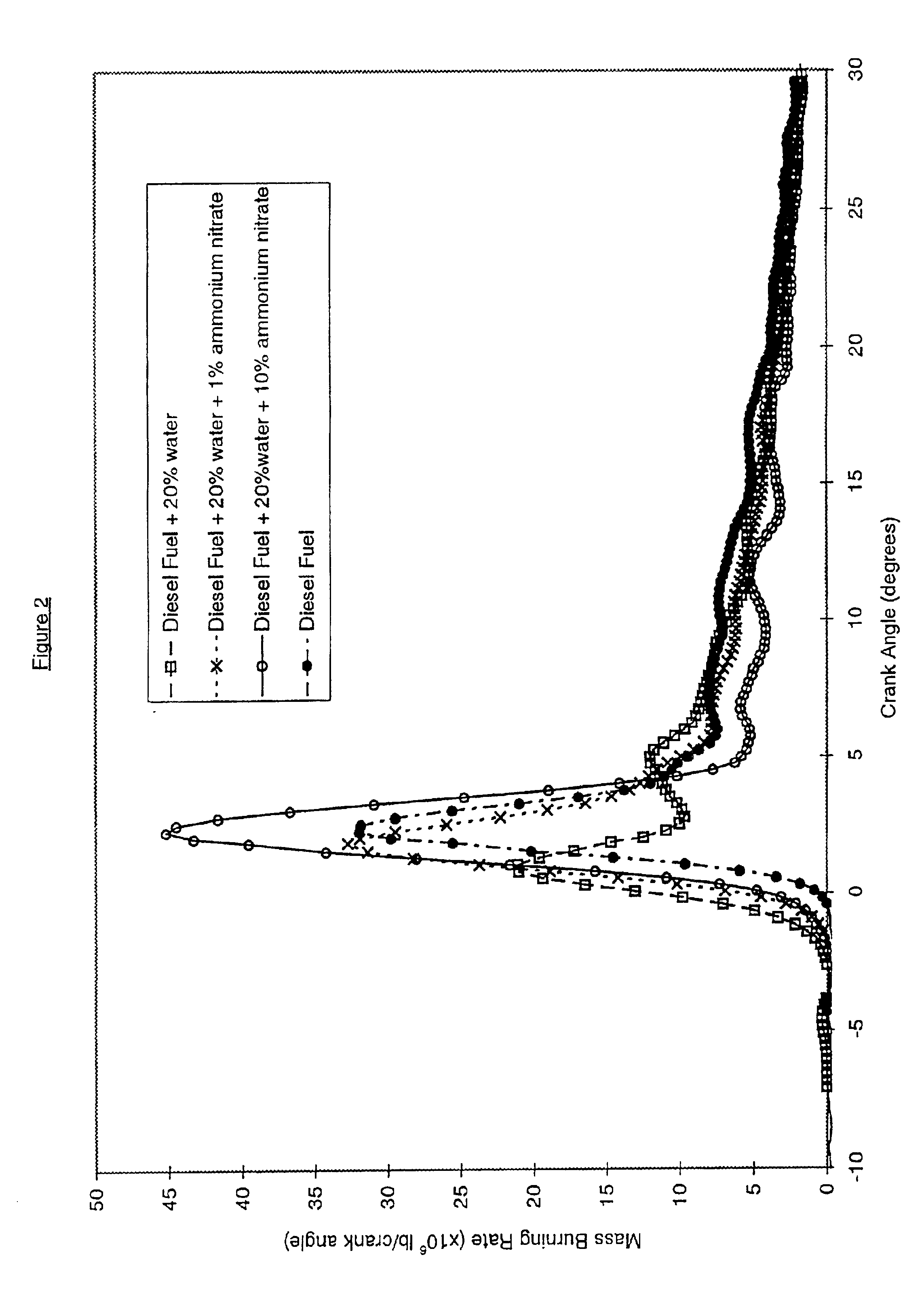Emulsified water-blended fuel compositions
a technology of emulsified water and fuel composition, which is applied in the direction of fuels, liquid carbonaceous fuels, petroleum industry, etc., can solve the problems of high hardware cost and historically difficult emulsion stability
- Summary
- Abstract
- Description
- Claims
- Application Information
AI Technical Summary
Benefits of technology
Problems solved by technology
Method used
Image
Examples
example 1
A mixture of 1000 parts (1.69 equivalents) of the polyisobutene-substituted succinic acylating agent having a ratio of succinic groups to equivalent weights of polyisobutene of about 1.91(prepared according to Example 1 of EP 0 561 600 A2) and 1151 parts of a 40 Neutral oil are heated to 65-70° C. with stirring. N,N-dimethylethanolamine (151 parts; 1.69 equivalent) is added such that the reaction mixture exotherms to 82° C. The reaction mixture is heated to 93° C. and held at that temperature for 2 hours. The temperature is adjusted to 160° C., and held at that temperature for several hours (10-15 hours), and then filtered and cooled to room temperature to provide the product. The product has a nitrogen content of 0.90% by weight, a total acid number of 13.0, a total base number of 39.5, a viscosity at 100° C. of 50.0 cSt, a viscosity at 40° C. of 660 centistoke (cSt), a specific gravity of 0.925 at 15.6° C., and a flash point of 75° C. The product is an ester / salt.
example 2
A mixture of 1000 parts (1.69 equivalents) of the polyisobutene-substituted succinic acylating agent of Example 1 and 1039 parts of a 40 Neutral oil are heated to 75-80° C. with stirring. Diethanolamine (125 parts; 1.69 equivalent) is added such that the reaction mixture exotherms to 90° C. The reaction mixture is heated to 116° C. and held at that temperature for a minimum of 4 hours. The reaction mixture is then filtered and cooled to room temperature to provide the product. The product has a nitrogen content of 0.83% by weight, a total acid number of 23.0, a total base number of 23.0, a viscosity at 100° C. of 120 cSt, a viscosity at 40° C. of 5000 cSt, a specific gravity of 0.938 at 15.6° C., and a flash point of 85° C. The product is an ester / salt.
example 3
A mixture of 1000 parts of polyisobutenyl succinic anhydride (“TLA™-629C” from Texaco, derived from a nominal 1000 molecular weight polyisobutylene; Saponification No. 79 mg KOH / g; Kinematic viscosities 24,400 and 400 cSt at 40° and 100° C. respectively) produced by direct alkylation of maleic anhydride (without the use of chlorine), 585 parts of a hexadecenyl succinic anhydride and 121 parts of a 100 Neutral mineral oil are heated to a temperature of 99° C., with stirring and maintained at that temperature for one hour. Thereafter 78 parts of ethylene glycol is added to the mixture. The mixture is maintained at 95-104° C. for 3 hours. Thereafter 225 parts of dimethylethanolamine is added to the mixture over a period of 0.5 hour and the reaction mixture is maintained at 95-104° C. for 2.5 hours and then cooled to 70° C. to provide the desired product. The product is an ester / salt. It has nitrogen content of about 1.75% by weight.
Some illustrative water-blended fuel compositions with...
PUM
| Property | Measurement | Unit |
|---|---|---|
| volume percent | aaaaa | aaaaa |
| weight percent | aaaaa | aaaaa |
| weight percent | aaaaa | aaaaa |
Abstract
Description
Claims
Application Information
 Login to View More
Login to View More - R&D
- Intellectual Property
- Life Sciences
- Materials
- Tech Scout
- Unparalleled Data Quality
- Higher Quality Content
- 60% Fewer Hallucinations
Browse by: Latest US Patents, China's latest patents, Technical Efficacy Thesaurus, Application Domain, Technology Topic, Popular Technical Reports.
© 2025 PatSnap. All rights reserved.Legal|Privacy policy|Modern Slavery Act Transparency Statement|Sitemap|About US| Contact US: help@patsnap.com



